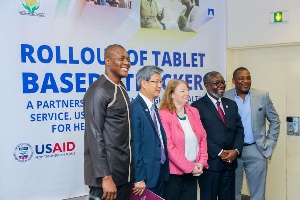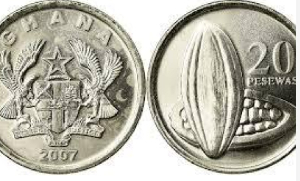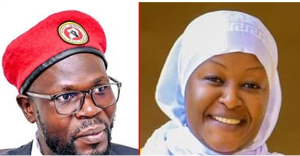The Ghana Health Service has entered into collaboration with global telecommunication giant Samsung and Good Neighbors International, a Korean-based humanitarian organization to deploy tablet PCs using an Android mobile version of e-Tracker for the capture and management of patients’ information at the Primary care level
The initiative, which is being piloted in three regions under the Digitization of Ghana Health Information System also has the United States Agency for International Development (USAID), and the Korean International Cooperation Agency (KOICA) in the Memoranda of Understanding (MOU) that was signed.
The collaboration will see Samsung Electronics provide 2, 950 Samsung tablets to the Ghana Health Service through Good Neighbors Ghana. In the pilot regions, Upper East, Volta and Eastern, health workers at the community level will be trained on the application of the tool to capture and save all health data for transmission into the District Health Information Management System (DHMIS2).
Receiving the equipment at a launch in Accra, the Director General of the Ghana Health Service Dr. Anthony Nsiah-Asare commended the partners for supporting the Ghana Health Service efforts to digitalize health information at the community level.
Dr. Nsiah-Asare revealed that the donation of the equipment comes at a time that the Ghana Health Service under his leadership has resolved to tap into the world of ICT to drive the Ghana Health Service in order to provide excellent health service towards achieving Universal Health Coverage (UHC).
Dr. Nsiah-Asare said Ghana has the potential to achieve UHC in less than five years if the Ministry of Health and the Ghana Health Service sustains the gains made over the years while accelerating the scale-up of evidence-based interventions for results.
He used the forum to appeal to other partners to come on board the Digitalization of the Health Information System project to assist the Service roll out the tablet-based e-Tracker in the rest of the seven regions that are not covered under the pilot.
His Excellency the Ambassador OF Korean, Sungsoo Kim said the government and people of Korea are happy for the opportunity to contribute to the improvement of health sector in Ghana. He was hopeful the support will go a long way to help Ghana achieve her developmental goals.
In her remarks, the Deputy Chief of Mission, USAID Melinda Tabler-Stone observed that the Government of Ghana’s “Beyond Aid” vision deserves support towards strengthening information systems for informed decision making.
She disclosed that USAID was happy to support such activities which focus on building local capacity and ownership as they fall within the United States Government foreign assistance policy.
A representative of Samsung Mr. Kelvin Ntiamoah-Sarpong said Samsung believes in using technology to improve life. “Samsung as a Global Citizen has made a commitment to support health and education and it is in furtherance of this belief that the company is partnering with Good Neighbors and others to support health care delivery in Ghana.
The Managing Director of Good Neighbors Ghana, Iiwon Seo said his organization was excited for the opportunity to be part of efforts by the Ghana Health Services and partners to eliminate omissions and improve on accuracy of health information.
Speaking in an interview, the Director of Policy Planning Monitoring and Evaluation Division of the Ghana Health Service Dr. Koku Awoonor said it is unfortunate that in this era of technology, Ghana still uses a paper-based system to capture patients information.
The pen and paper system Dr. Awoonor noted is fraught with challenges and although a lot of effort is made by nurses and managers to reduce the challenges such as data loss, omissions and other problems, it appears the weaknesses of that system will never go away.
“With the paper and pen system, nurses and managers actually spend a lot of their time trying to get the right information as much as possible but no matter how hard they try some of the information is lost” Dr. Awoonor lamented.
“You know if there are problems with the quality of data and patients cannot also be tracked because the information is on a paper somewhere, then that affects quality of care and planning. How do we continue to work with this kind of system”, he queried.
Dr. Awoonor stressed that with the current times of ICT, it was time Ghana got rid of the pen and paper system as a key step towards addressing the fundamental problems in the healthcare system.
He hinted that the Ghana Health Service is hopeful their efforts in the current project will attract other partners to come in and assist the Service to cover the rest of the country.
“The idea is for us to provide every CHPS zone across the entire country with at least two tablets-based e-Tracker devices for data capture and health information management. We need transactional data across board to make timely decisions affecting the health sector and health service delivery”, he said.
A data Management Expert with the Ghana Health Service Mr. Dominic Atweam said the tablet-based eTracker has an added advantage of the capacity to run offline.
This means data can be entered on the application any time nurses encounter a client even if there is no internet service at that particular moment. The information can then be uploaded onto DHMIS2 whenever internet service is available.
He advised that as the country looks to replace the paper system with electronic data capture it will be important to target improvement in electricity and internet coverage across the country to make it easier to use the devices.
The Deputy Director Information, Monitoring and Evaluation of the GHna Health Service PPMED Dr. Anthony Ofosu was happy the goal of the Service to revolutionalize health information management system is gradually coming to a reality.
Health News of Wednesday, 7 March 2018
Source: News Ghana













